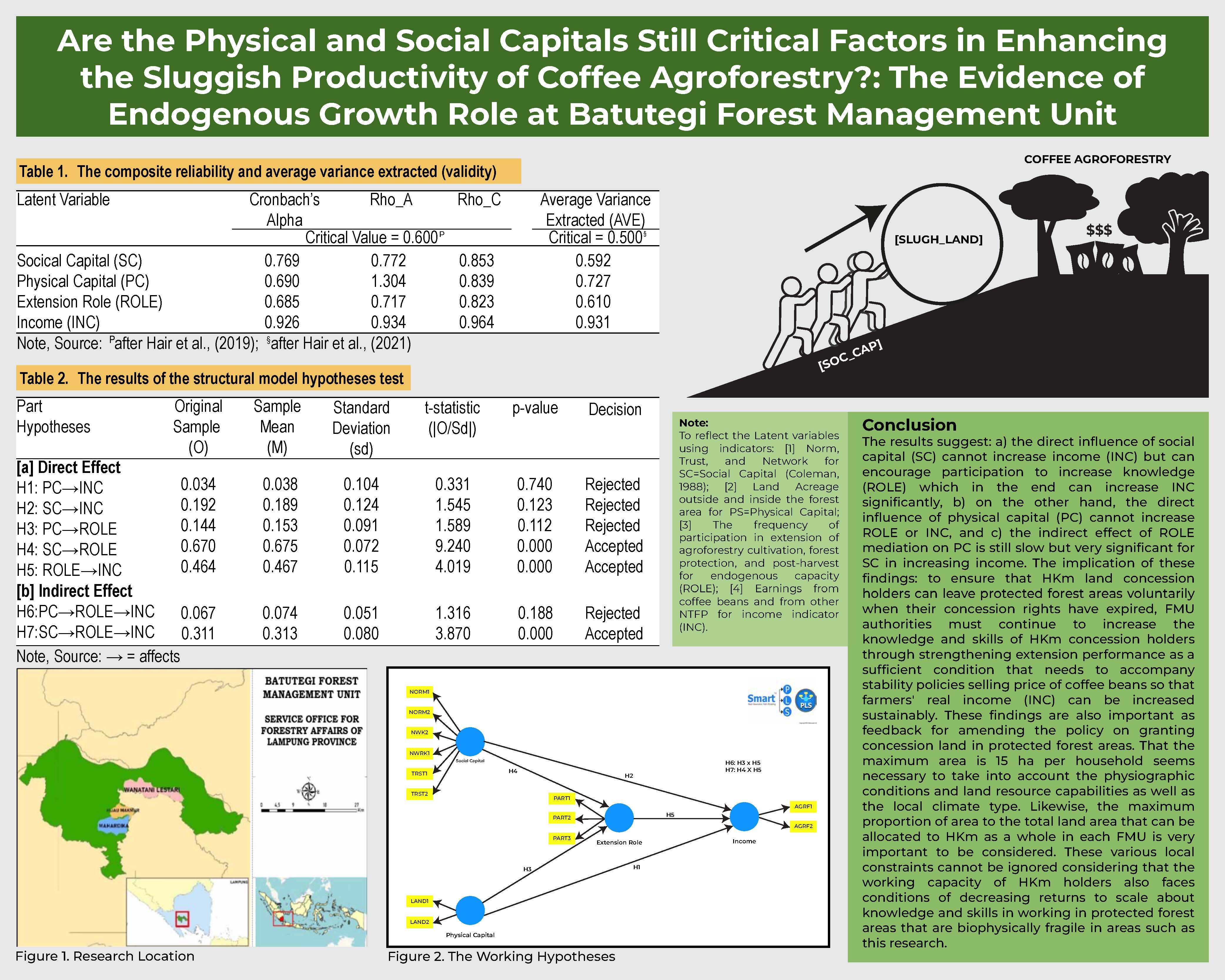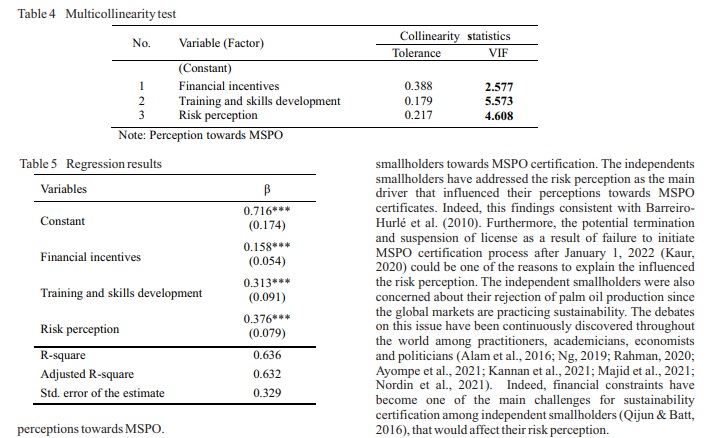Abstract
Development of protected forest is often considered to be a way to preserve biodiversity and ecosystem service. To keep protected area, Indonesia government excludinged local people from protected forest by making a policy which prohibits grazing on protected forest. However, the success of protected forest management often depends on the perception of local people because the policy has affected livestock owners who have an interest in forest use. Exclusion of local people from protected forest leads loss of people income and unemployment. This study applied a socioeconomic approach to examine and analyze the livestock owner perception on forest grazing prohibition in Timor Island of Indonesia by conducting a household survey of 36 livestock owners. The study results showed that 30.6%, 50.0%, 19.4%, 0%, and 0% of livestock owners are totally disagree, disagree, neutral, agree, and totally agree, with grazing prohibition, respectively. In addition, people perception was significantly affected by the number of livestock owned by people. It means that livestock owners mostly reject the policy on grazing prohibition. Indeed policy which prohibits grazing on the protected forest is not effective to be implemented. Government and policy maker should review the policy and consider the refusal of livestock owner toward exclusion policy. The interest of local people should be considered in developing a policy on protected forest.
Authors
KurniadiR., PurnomoH., WijayantoN., & FuahA. M. (2017). The Refusal of Livestock Owners Towards Exclusion Policy In Protected Area. Jurnal Manajemen Hutan Tropika, 23(1), 16-24. Retrieved from https://journal.ipb.ac.id/index.php/jmht/article/view/16707

This work is licensed under a Creative Commons Attribution 4.0 International License.
Jurnal Manajemen Hutan Tropika is an open access journal which means that all contents is freely available without charge to the user or his/her institution. Users are allowed to read, download, copy, distribute, print, search, or link to the full texts of the articles in this journal without asking prior permission from the publisher or the author. This is in accordance with the Budapest Open Access Initiative (BOAI) definition of open access.


